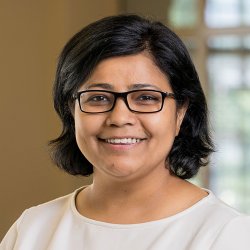The UW Lands Two Leading Dementia Researchers
UW–Madison’s vast collection of Alzheimer’s data attracts international stars.

Henrik Zetterberg and Hartmuth Kolb hope to identify biomarkers that will show the likelihood of a person developing dementia. Danielle Lawry
Two of the world’s leading dementia researchers are joining the UW faculty to identify what might be the earliest signs of cognitive decline. UW–Madison’s School of Medicine and Public Health is adding Henrik Zetterberg, a Swedish scientist who studies biomarkers, and Hartmuth Kolb, a German-born chemist and expert in imaging technology, to its faculty. Their goal is to identify chemicals in blood or spinal fluid — the biomarkers — that will show the likelihood of a person developing dementia.
Alzheimer’s disease is the most common form of dementia, affecting more than 55 million people — but it’s not the only kind. Dementia has no cure, though there are drugs that can slow the affliction’s progress.
“The value of biomarkers is immense,” says Sanjay Asthana, director of the Wisconsin Alzheimer’s Disease Research Center. “With Alzheimer’s, once a person shows symptoms, it’s too late. The damage is done. Our hope is that, if we can identify people with these biomarkers before symptoms are evident, we can use whatever treatments are available and keep them symptom free for the rest of their life.”
Zetterberg and Kolb will look for markers that identify two proteins, TDP-43 and alpha-synuclein, both of which appear to play a role in the development of Alzheimer’s-like dementia.
“TDP-43 happens in the same place as Alzheimer’s, in the memory circuits of the brain,” says Sterling Johnson, who heads the UW’s Wisconsin Registry for Alzheimer’s Prevention (WRAP). Over the course of more than 20 years, WRAP has collected tens of thousands of blood and spinal-fluid samples — a dataset that is unique in its scope. “I went to the dean with this concept of building a multi-etiology research platform, and the dean provided faculty lines to bring Zetterberg and Kolb here [and] bring a prevention mindset to the WRAP study.”
According to Asthana, Zetterberg and Kolb are world-renowned authorities on biomarker research. “Almost every university — in the United States or in other countries — would have loved to have them,” he says. “They decided to come to UW–Madison, in part, because they will have access to so many [patient] samples.”
Published in the Summer 2025 issue



Comments
William Clifton June 30, 2025
This is fantastic. These researchers, having access to the samples given through the WRAP Longitudinal Study, will do nothing but good toward finding a possible prevention and/or a cure for Alzheimer’s Disease.